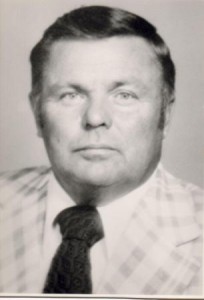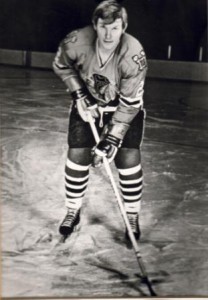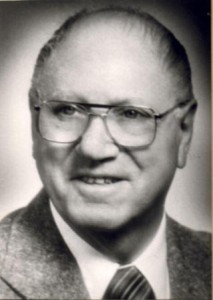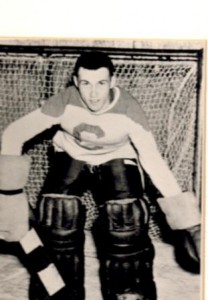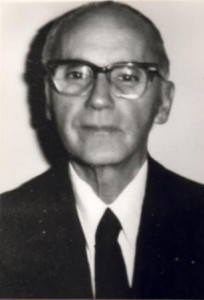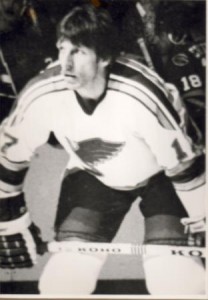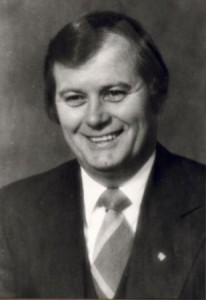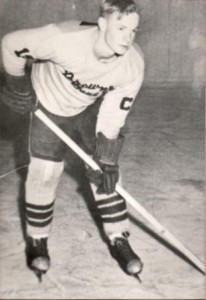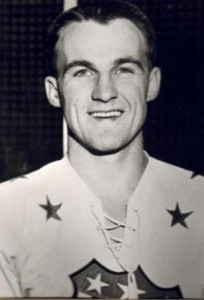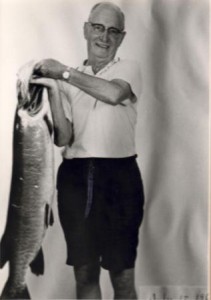 At age ninety, Vic Ellis is the oldest living member in the Collingwood Sports Hall of Fame.
At age ninety, Vic Ellis is the oldest living member in the Collingwood Sports Hall of Fame.
A lifetime of competition in many branches of sport, especially in golf and curling, has filled his home with so many cups and trophies that it now appears he has a corner on the silver market.
Born in Kimberly, Ont., Vic starred on baseball and soccer team before baseball and soccer teams in 1911, winners of the Grey County soccer cup.
Vic played on Collingwood baseball and softball teams for thirty years and was a member of the Collingwood senior baseball team of 1922, O.A.B.A. finalists and champions of the Georgian Bay League.
A school teacher in Collingwood for twenty years, Vic was the driving force behind the organization of the one-hundred member Tuxis Boys and Trail Rangers in the 1920’s.
A member of the old Collingwood Golf and Country Club and the Blue Mountain Golf Club for the past fifty-five years, he has been a perennial member of the Men’ Golf team and fifteen years ago won the Blue Mountain Handicap Trophy. In July 1943, he shot a hole in one for the first and last time in his golfing career.
However, this versatile athlete gained most of his fame as a expert exponent of the game of curling.
A past president of the Collingwood Curling Club, Vic has dominated the “roaring game” for sixty years.
Just two years ago he skipped the winning rink in the Markdale Mixed Curling tournament and in 1979 led a Creemore rink to the Quebec International Bonspiel Championship and the Marc-Hellaire Trophy.
This is a major curling feat at any time, but at eighty-seven, it was nothing short of a phenomenon.
Back in 1936 he skipped a rink in the Ontario Tankard competition and during his lifetime of curling won at least thirty trophies, including the Norman Rule Cup, the Currie Cup, the C.S.L. Trophy, the Enterprise-Bulletin Shield and the Chamber of Commerce Cup.
In 1956 he skipped the first Collingwood rink to ever score an eight end. It was a mixed team with Mary Colling, Evelyn Kean and Johnny Walker.
A lifelong member of the Smokey Island Hunt Club, Vic never missed a deer hunt in six decades.
His involvement in service clubs, charitable organization and the Masonic Order is legend. He has the distinction of presiding over all three branches of the Masonic Order in Collingwood. W Master of the Manito Lodge, “Z” of the Manitou Chapter and was first President of the Manito Shrine Club. Vic also served as president of the Collingwood Progress Club, chairman of the Victoria Order of Nurse, president of the Collingwood Curling Club, director on the General and Marine Hospital Board and a moving force behind the development of the Senior Citizen Club and the Meals on Wheels service.
His contribution to society was finally recognized two years ago when he was selected as the Citizen of the Year. His induction into the Sports Hall of Fame was delayed because of the rule that no person is eligible until after retirement. We had to waive that rule in the case of Victor A. Ellis – he is never going to retire.

